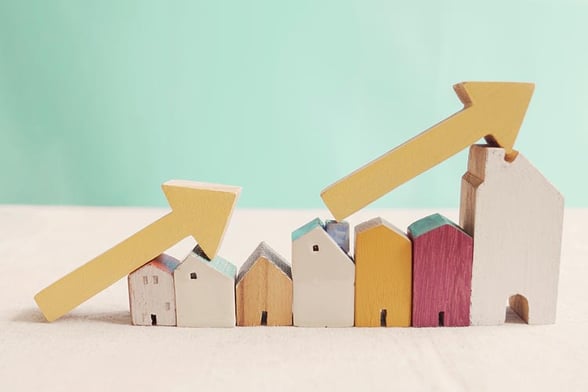
Real estate investors are motivated by various goals, including wealth accumulation, tax management, and pride of ownership, among others. Certainly, many hope that the property they buy will appreciate in value. Appreciation of an asset is an increase in value over time. Whether it occurs, how fast, and how much depends on external factors like supply and demand. While appreciation is typically viewed as a positive outcome, investors should prepare for it since if they sell appreciated property, they may owe taxes on the capital gain that the increase in value represents. Savvy investors should employ strategies to mitigate the impact of this circumstance by seeking professional financial and tax advice.
What Causes Appreciation?
As noted, the overall economic conditions, including employment and inflation, play a significant role in the price of real estate—both housing and commercial. However, supply and demand are also a substantial force: when more people want to buy than want to sell, prices rise. The housing market in the U.S. for the most recent eighteen months is an excellent example. Inventory has been tight, and prices have increased dramatically across the country.
Do Home Prices Always Rise?
Values do not always go up, as many people caught in the Great recession of 2008-2009 will painfully recall. After a period of steady value increases, prices plummeted over twelve percent from January 2008 through 2009, leaving many owners and investors "underwater." Being underwater means that the mortgage amount outstanding is higher than the asset's current value. As a result, the owner can't sell the property for what they owe. In such a situation, many owners simply walked away from their properties. Others held on until the values gradually returned to pre-recession prices.
More recently, residential real estate values have risen—more in some regions than others. Still, according to expert Case-Schiller, the nationwide average since the onset of the pandemic 19 months ago is a whopping 22 percent. Interestingly, forecasts for the next year vary widely, as predictions often do.
Is Commercial Real Estate Different?
Commercial real estate includes multiple sectors and classes, all of which can respond differently to market forces and may experience different effects. For example, when employment is low, the self-storage sector may benefit as people move in search of better jobs and need to store some items temporarily. Likewise, during the initial stages of the pandemic, when retail operations were closed or less accessible, online businesses boomed, boosting demand for warehouse facilities.
The key to appreciation for commercial properties is primarily the income it produces or can potentially create. Newer construction may be more attractive, but other factors like location and amenities contribute to the bottom line for tenants and thus to the value.
What’s the Bottom Line on Appreciation?
For commercial property, expect a property to depreciate without capital infusions spent on improvements. In fact, as an investor, you have a depreciation schedule that the IRS has established. For residential assets, value increases are not guaranteed, and over the life of ownership, they are typically modest.



